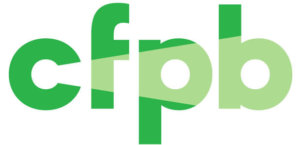May 23: Recent CFPB Activities
 The Consumer Financial Protection Bureau
The Consumer Financial Protection Bureau
The Consumer Finance Protection Bureau (CFPB) is responsible for consumer protection in the financial sector. CFPB’s jurisdiction includes credit unions, banks, securities firms, payday lenders, mortgage-servicing operations, foreclosure relief services, debt collectors, and other financial companies operating in the United States. NASCUS closely monitors CFPB developments and responds to requests for comments on rules impacting the credit union system.
Recent Updates
PUBLISHED
CFPB issued an Interpretive Rule related to “Buy Now, Pay Later” products.
The Interpretive Rule addresses the applicability of Regulation Z to certain lenders marketing their loans as “Buy Now, Pay Later.” This interpretive rule clarifies that these lenders are “card issuers” for purposes of Regulation Z. Additionally, it clarifies that such lenders that extend credit are also “creditors” subject to certain provisions of Regulation Z, including those provisions governing periodic statements and billing disputes.
Comments are due on this Interpretive Rule by August 1, 2024.
You can access the Interpretive Rule here: www.consumerfinance.gov/rules-policy/notice-opportunities-comment/open-notices/use-of-digital-user-accounts-to-access-buy-now-pay-later-loans/.
The Consumer Financial Protection Bureau (CFPB) today issued an interpretive rule that confirms that Buy Now, Pay Later lenders are credit card providers. Accordingly, Buy Now, Pay Later lenders must provide consumers some key legal protections and rights that apply to conventional credit cards. These include a right to dispute charges and demand a refund from the lender after returning a product purchased with a Buy Now, Pay Later loan. The CFPB launched its inquiry into the rapidly expanding Buy Now, Pay Later market more than two years ago and continues to see consumer complaints related to refunds and disputed transactions. Today’s action will help bring consistency to this market.
The Buy Now, Pay Later market has expanded rapidly over the past few years. Lenders advertise buying products over four simple payments. Products are marketed as a way to help consumers pay for expensive products and services over time without having to pay interest. Today, both products, like televisions and gaming systems, and services, like airline tickets and cruises, can be purchased through Buy Now, Pay Later products. Buy Now, Pay Later products are popular across ages, races, and income levels. Read more
CFPB Takes Action Against Western Benefits for Swindling Student Loan Borrowers